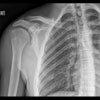
NEW YORK (Reuters Health), Dec 3 - In women with axillary node-positive breast cancer, giving trastuzumab after the end of adjuvant chemotherapy and radiation did not significantly reduce their risk of relapse, European researchers report online in the Journal of Clinical Oncology.
The report, by Dr. Marc Spielmann of the Institut Gustave Roussy, Villejuif, France, and colleagues, noted that almost all previous trials of trastuzumab in similar populations reported a statistically significant benefit, with risk reductions ranging from 36% to 58%.
Regarding possible reason(s) for their findings, the authors point out that "the most robust data for trastuzumab efficacy came from trials that evaluated a concomitant schedule" rather than a sequential one.
Subjects in the multicenter study were drawn from among 3,010 women with axillary node-positive nonmetastatic breast cancer who had been randomized to receive one of two chemotherapy regimens (either fluorouracil, epirubicin and cyclophosphamide or epirubicin and docetaxel) plus radiation (if breast surgery had been conservative).
The 528 women with tumors that over-expressed human epidermal growth factor receptor 2 (HER2) were randomized a second time, to receive either a one-year course of trastuzumab, or observation.
Trastuzumab was given as an 8 mg/kg loading dose and a maintenance dose of 6 mg/kg every three weeks for up to 18 cycles. The HER2-positive women had a median age of 48 years.
Three-quarters of those slated to get trastuzumab received it for at least six months. The main reason for discontinuing trastuzumab was cardiac events (41 patients), although no deaths from cardiac causes were reported.
After a median follow-up of 47 months, trastuzumab treatment was associated with a nonsignificant 14% decrease in the risk of relapse and with no difference in the risk of death. Three-year disease-free survival rates were 81% with trastuzumab and 78% with observation. Three-year overall survival rates were 95% with trastuzumab and 96% in controls.
Going back to their point that earlier reports showed a benefit of trastuzumab when it was given with, rather than after, chemotherapy, the researchers add: "Preclinical data suggest that, in addition to exerting direct antiproliferative effect on cancer cells, the concomitant use of trastuzumab could increase the taxane sensitivity of cancer cells."
By Scott Baltic
J Clin Oncol 2009.
Last Updated: 2009-12-02 13:16:58 -0400 (Reuters Health)
Related Reading
Trastuzumab + RT = no cardiac risk in breast cancer, April 24, 2009
Trastuzumab cost-effective for early HER2-positive breast cancer, March 9, 2007
CNS metastases common among breast cancer patients given trastuzumab, June 16, 2003
Copyright © 2009 Reuters Limited. All rights reserved. Republication or redistribution of Reuters content, including by framing or similar means, is expressly prohibited without the prior written consent of Reuters. Reuters shall not be liable for any errors or delays in the content, or for any actions taken in reliance thereon. Reuters and the Reuters sphere logo are registered trademarks and trademarks of the Reuters group of companies around the world.

















